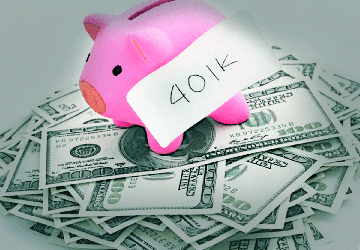An MMA is an interest-bearing deposit account opened with a financial institution such as a bank or credit union. A money market or deposit account is distinguished from other account types by certain unique characteristics.
Money market accounts typically enable checking, take debit cards, and offer higher interest rates than traditional savings accounts (passbook accounts). They may also have limitations that make them less versatile than standard checking accounts. They are an important part of determining tangible net worth.

This is how a money market account works.
Money market accounts, which are financial products, can be opened by traditional banks, internet banks, online banking customers, as well as members of credit unions. They offer account users some of the key benefits of a savings account while providing the functionality of a checking account, including the following benefits and features:
Interest
Like savings accounts, MMAs offer account holders the opportunity to earn interest on the account balance. Interest rates are usually higher than those on traditional savings accounts. However, the interest rate is generally variable and fluctuates according to market developments.
Debit card
Some financial institutions offer customers debit cards in addition to accounts, which cardholders can use to withdraw money, deposit money, and transfer money at ATMs.
Check letter
In addition to using a debit card, customers can also choose to have a check drawn against the available account in their account.
Banks usually require a minimum initial deposit when opening a money market account (MMA). While the report is active, the balance must remain at or above a certain level. The bank may charge a service fee if the account balance falls below a specified minimum level.
Individuals with more immediate financial goals may consider opening a money market account rather than a traditional savings account because it offers a higher return on investment. If you want to invest for a specific purchase, such as travel, a down payment on a vehicle, money for a bad day, or an emergency fund, a money market account (MMA) is the smart choice. Long-term goals like retirement are not goals at all.

MMA Has Both Positives And Negatives
Money market accounts have their advantages and disadvantages compared to other account types. This is especially true when you consider the context of the comparison. Benefits include:
· Higher interest rates.
· The ability to write checks.
· The privilege of getting a debit card.
Customers of financial institutions such as banks and credit unions are often required to open an account with a minimum deposit and balance to keep the account open. Many will charge you a monthly fee if the amount is less than the minimum amount.
Additionally, these accounts are protected by government insurance. The National Credit Union Administration insures funds held by credit unions, while the Federal Deposit Insurance Corporation insures bank accounts. Certain types of accounts, such as B. MMA, are protected by the FDIC or NCUA up to $250,000 per depositor per bank. All insurable funds held at a single financial institution (including checking accounts, savings accounts, and certificates of deposit) are insured up to a maximum of $250,000. Joint accounts are protected up to $500,000. Potential disadvantages include transaction restrictions, fees, and minimum balance restrictions.
advantage
·Higher interest rates
·Debit card
·Insurance coverage
·Permission to write checks
shortcoming
·Fees for a limited number of transactions
·Minimum balance requirement
MMA and Savings Accounts
Money market accounts offer higher interest rates than savings accounts, which is one of the main advantages of these accounts. For example, the typical annualized return (APY) for an MMA in May 2022 is 0.08%, but the specific annualized return (APY) for a savings account is about 0.07%.
The difference between the two account categories widens when the average interest rate is higher, as it did during most of the 1980s, 1990s, and 2000s. Unlike savings accounts, money market accounts allow you to invest in certificates of deposit (CDs), government securities, and commercial paper. This provides money market accounts to offer higher interest rates than savings accounts.
Because interest rates on money market accounts are variable, they may rise or fall based on the level of inflation. The frequency of compounding (such as annually, monthly, or even daily) can significantly affect the returns a saver receives, especially if the saver has a large amount of money in their account.






